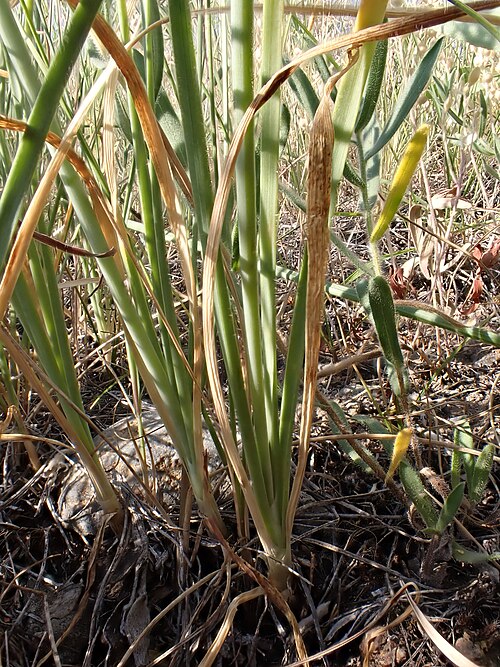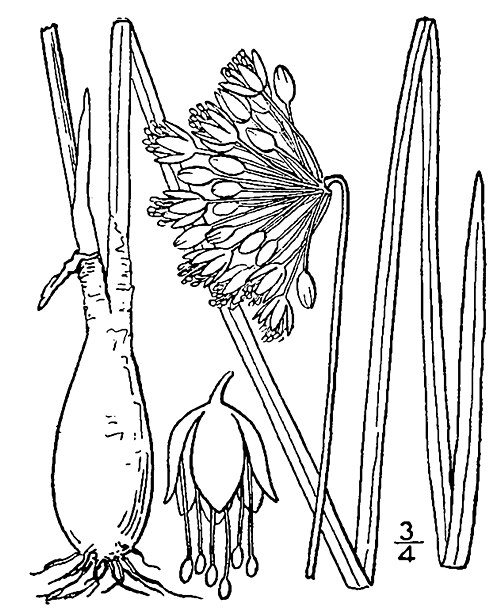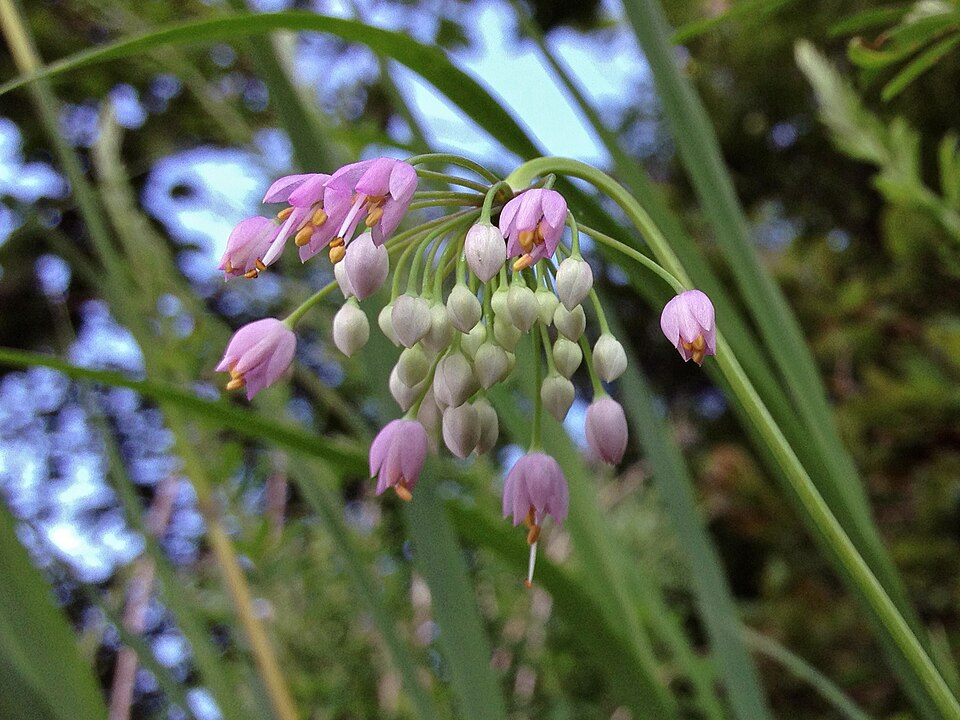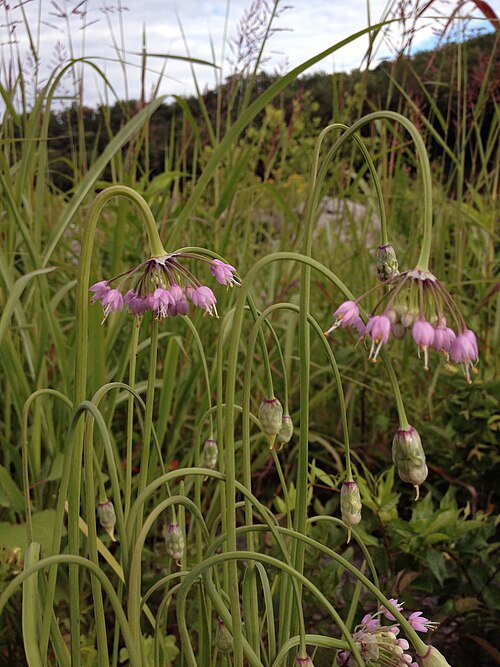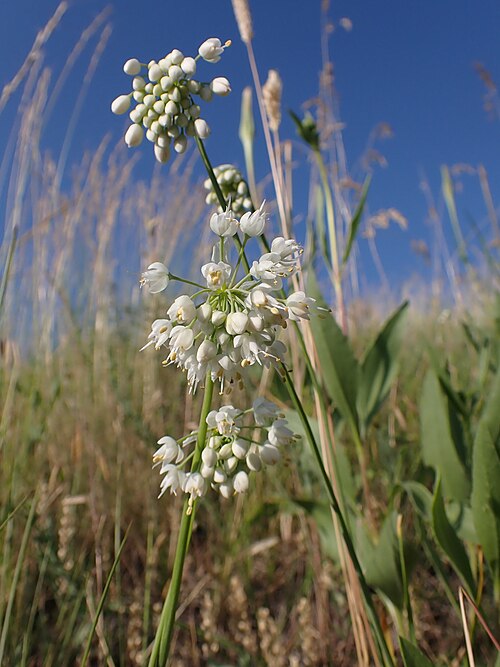Nodding Onion: A Charming Native Wildflower That Deserves a Spot in Your Garden
If you’re looking for a low-maintenance native wildflower that brings both beauty and ecological benefits to your garden, let me introduce you to the delightful nodding onion (Allium cernuum). This unassuming perennial might not win any flashy flower contests, but it’s one of those reliable garden performers that quietly does its job while supporting local wildlife.
What Makes Nodding Onion Special?
Nodding onion is a charming herbaceous perennial that gets its common name from its distinctive drooping flower clusters. Unlike its upright cousins in the onion family, this plant’s delicate pink to white bell-shaped flowers hang gracefully downward, creating an almost shy, nodding appearance that’s absolutely endearing.
As a native forb (that’s garden-speak for a non-woody flowering plant), nodding onion produces slender, grass-like foliage that emerges in spring, followed by those characteristic drooping flower heads in mid to late summer. The flowers eventually give way to small seed pods, extending the plant’s visual interest well into fall.
Where Does It Come From?
Here’s something wonderful about nodding onion – it’s truly a North American native with an impressive range. This hardy wildflower naturally occurs across most of Canada and the lower 48 states, including Alberta, British Columbia, Ontario, Saskatchewan, and states from Alabama to Wyoming. That’s quite a geographic spread, making it adaptable to various regional conditions!
However, there’s one important note for Arkansas gardeners: nodding onion has a rarity status of SH (historically present) in the state, meaning it was once found there but current populations are uncertain. If you’re in Arkansas and want to grow this beauty, make sure to source your plants from reputable native plant nurseries.
Why Your Garden (and Local Wildlife) Will Love It
Nodding onion is like that friend who’s always there when you need them – reliable, undemanding, and surprisingly helpful. Here’s why it deserves consideration for your landscape:
- Pollinator magnet: The flowers are beloved by bees, butterflies, and other beneficial insects
- Low maintenance: Once established, it’s quite drought tolerant
- Naturalizing ability: Spreads gently through bulb division and self-seeding
- Versatile placement: Works well in wildflower gardens, rock gardens, and prairie restorations
- Extended interest: Attractive from spring emergence through fall seed development
Perfect Garden Spots for Nodding Onion
This adaptable native fits beautifully into several garden styles:
- Native plant gardens: A natural choice for authentic regional landscapes
- Xeriscapes: Its drought tolerance makes it perfect for water-wise gardening
- Cottage gardens: Adds a wildflower charm without being aggressive
- Naturalized areas: Excellent for meadow-style plantings
- Rock gardens: Thrives in well-draining conditions
Growing Conditions That Make It Happy
One of nodding onion’s best qualities is its flexibility regarding growing conditions. Based on wetland status data across different regions, it typically prefers upland conditions (meaning it usually grows in non-wetland areas), though it can occasionally tolerate some moisture.
Here’s what this easygoing native prefers:
- Sunlight: Full sun to partial shade
- Soil: Well-draining soil (it doesn’t like wet feet)
- Hardiness zones: USDA zones 3-9
- Moisture: Drought tolerant once established, but appreciates occasional water during dry spells
Planting and Care Tips
Growing nodding onion is refreshingly straightforward – it’s one of those plants that rewards benign neglect:
- Planting: Plant bulbs in fall or start from seed in spring
- Spacing: Allow 6-8 inches between plants
- Watering: Water regularly the first year, then reduce as plants establish
- Fertilizing: Generally unnecessary – native soils are usually sufficient
- Maintenance: Deadhead if you want to prevent self-seeding, or leave seed heads for wildlife
The Bottom Line
Nodding onion might not be the showiest plant in your garden, but it’s definitely one of the most dependable and ecologically valuable. Its gentle beauty, pollinator appeal, and low-maintenance nature make it an excellent choice for gardeners who want to support native ecosystems while creating attractive, sustainable landscapes.
Whether you’re establishing a prairie garden, adding natives to your existing beds, or creating habitat for pollinators, this charming wildflower deserves serious consideration. Just remember to source plants responsibly, especially if you’re in areas where it has conservation concerns.
